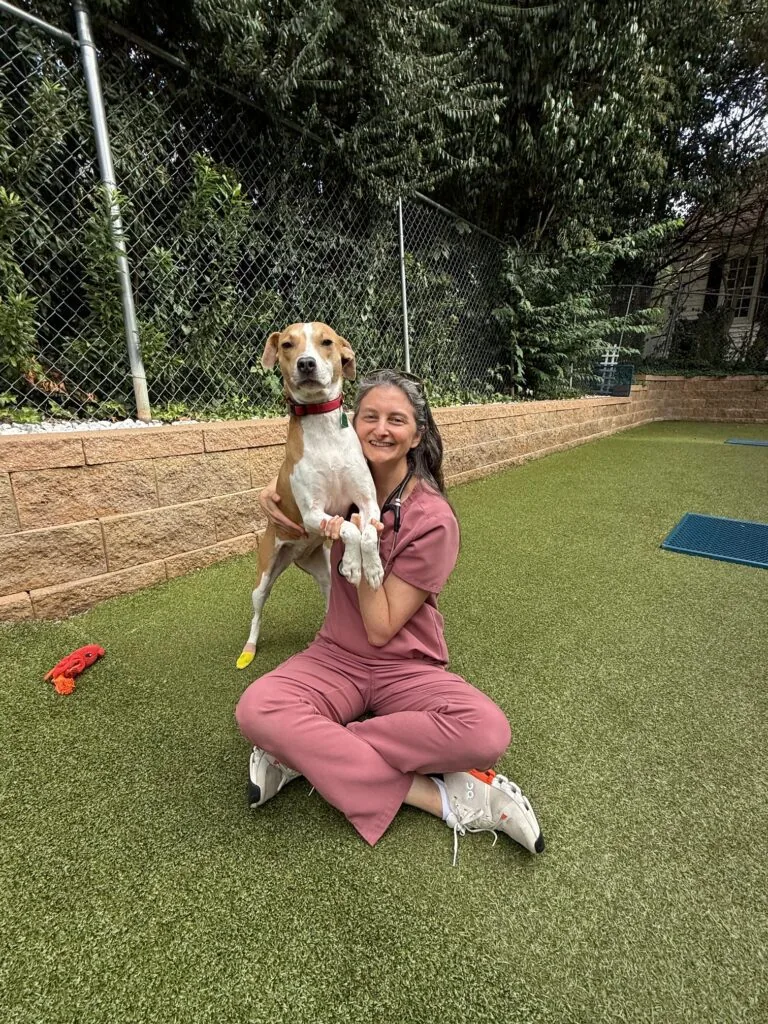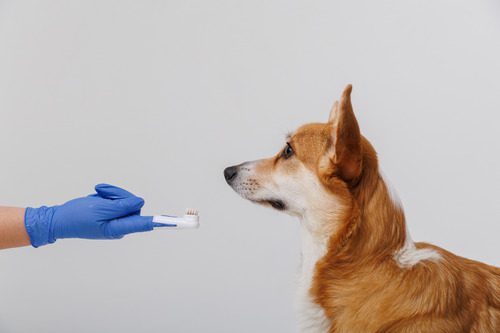How to Help Prevent Against Heartworm in Dogs
Heartworm prevention is essential for pet parents to be aware of, especially for dogs. Heartworms are spread by mosquitoes. Your pup is exposure to heartworms when outside. The reality is, no matter how careful you are, you cannot one hundred percent prevent mosquito exposure to you dog.
However, you can one hundred percent prevent your dog from getting heartworms by utilizing regular heartworm prevention.

Heartworm prevention is safe, affordable, convenient and necessary. If your dog is not on prevention and gets heartworms, treatment can be complex and expensive. It will require many visits to the vet and limiting your pup’s exercise regimen. There can also be long term effects to your dog’s health.
Symptoms of the disease are directly correlated with the severity and length of time your pup has been infected. Heartworms can be fatal, and if you suspect your dog may be suffering from heartworm, you need to take them to the vet right away.
Read below and learn more about how to help prevent heartworm in dogs.
What is Heartworm Disease?
Dogs are naturally susceptible to heartworm disease. Heartworm disease is an illness that can result in heart and respiratory conditions in dogs. It is initiated by a parasite that is referred to as a heartworm. Heartworm gets into the dog’s blood vessels and eventually makes its way into their heart where the worms start to grow.
These worms live in the heart and lungs and can grow up to a foot long. As the worms mature, they mate and create offspring. The offspring also grow building up blockages in the heart and lungs as they multiple.
Heartworm infections left untreated can trigger severe heart and lung problems and damage other organs in the body. In addition, the worms can weaken the immune system, cause anemia, and even blood clots after the worms are gone. It can possibly be fatal if it is not treated early enough. This disease can be prevented with prophylactic medications.
Dogs are naturally susceptible to heartworm disease. Heartworms can live inside the dog and live there long enough to mature into adult worms.
Heartworm disease can affect dogs, cats, and ferrets. In rare cases, humans can also be carriers of the disease. Prevention is the most practical solution, and treatment should be given as early in the disease process as possible.
How Does a Dog Get Heartworm?
Dogs get heartworms from mosquitoes. An infected dog cannot spread heartworm disease to another dog, as it is not contagious.
When a mosquito punctures an infected dog, it drinks the dog’s blood as well as some microscopic heartworm larvae. The larvae are only millimeters in length at this point. While inside the mosquito, the larvae begin growing and maturing. Then, the mosquitos bites an uninfected dog and transmits the mature larvae into the dog’s tissues through the bite.
This process is how a dog contracts heartworm disease. They travel through the mosquito’s bite into the dog’s tissues.
After the larvae are in the dog’s tissue, they perform a complex migration pattern on the dog’s body as the worm continues growing and becomes an adult. The parasites go through the dog’s system and situate themselves within the pulmonary artery.
This time is when they grow into larger worms, mate, and have babies; thus, perpetuating the vicious cycle.
What Are the Indicators of Heartworms in Dogs?
Knowing what symptoms to look for in your dog when it comes to heartworm can be tricky. Sometimes dogs do not show any signs at all. It depends on how progressed the disease is in your pup. The following are some of the symptoms your dog can have if they have heartworm:
- Coughing
- Coughing up blood
- Increased respiratory rate
- Decreased energy
- Abdominal swelling
- Running out of breath when exercising
- Heart failure
- Liver damage
- Internal inflammation
- Increased blood pressure
- Kidney damage
- Blood clots
The severity of the clinical signs linked with heartworm disease depends on how many worms reside in your pup and how long the parasite has lived in their system. If you suspect your dog could have heartworm, do not hesitate to get them to the vet.
How Can You Help Prevent Against Heartworm in Dogs?
Certain critters can be very detrimental to your dog’s health. Heartworm is a severe illness for a dog, and can be fatal if not caught in time. The subsequent information is how you can help prevent heartworm disease:
Keep Up with Vet Visits
Make sure you take your dog for regular vet visits at least once or twice a year. Your vet can perform heartworm testing to determine if your dog is affected. A complete physical and check-up can save your dog’s life.
Outdoor Bug Control
Keeping the bugs in your yard to a minimum can go a long way toward protecting your pup from heartworm. In this case, mosquitos are the culprit. You can use insecticide spray in your yard, but ensure that the product is not dangerous for dogs.
Mosquito Proof Your Home
Mosquitos can get into your house through open doors and windows. They can come in through a hole in a screen or get in if the door is open. This situation is often how they get trapped inside the house.
This situation is often how they get trapped inside the house. Mosquitos also like to breed in standing water, such as a birdbath or flower pot. Remove any common breeding areas to lower to amount of mosquitos in your yard.
Preventive Medication
There are many preventive products you can use on your dog to protect them against mosquitos and prevent heartworm. These treatments can be administered orally, by injection, or topically, depending on your dog’s tolerance and your preferred length of coverage.
Prevention such as Simparica Trio is a tasty treat you give your dog once every 30 days. Other alternatives like ProHeart 12 can be given under the skin by your veterinarian and last 12 months. Compliance is key to preventing your pup from getting heartworms. You can even earn rewards dollars when you purchase prevention for you pup. Talk to your vet about which option is best for your pup and convenient for you.
Do not give preventive medication if your dog has a heartworms medication, as it can lead to severe problems. There is a risk that it may not kill the adult worms, and they may cause scarring to your pup’s heart and lungs.
Make sure you treat your dog under the careful guidance of a veterinarian. This caution can help eliminate any possible problems when administering medication.
Keep Your Dog Up-to-Date on Their Heartworm Preventatives
Heartworms can lead to serious health problems in dogs. Since dogs are more prone to the disease, prevention is strongly recommended and is the best way to keep your dog safe.
If you think your dog has heartworm disease, get them to see the veterinarian as soon as possible.
At Bowman Animal Hospital and Cat Clinic, we’re here for all your pet care needs in Raleigh, NC and the surrounding areas. Our veterinarians can provide the best heartworm prevention for your dog or cat to keep your pet protected and live a long, happy, and healthy life!
Give us a call if you have any questions regarding your pet’s health or would like to purchase heartworm prevention today.
Recent Posts
“Do I Really need to Give My Pet Heartworm, Flea & Tick Prevention Year-Round?” – Yes, Yes You Do. Here’s Why
“Do I Really need to Give My Pet Heartworm, Flea & Tick Prevention Year-Round?” – Yes, Yes…
Pet Insurance 101: Is it right for your family?
Pet Insurance 101: Is it right for your family? If you’ve ever faced an unexpected vet bill,…
August is Itchy Pet Awareness Month! Let’s Talk About Pet Skin Health
August is Itchy Pet Awareness Month! Let’s Talk About Pet Skin Health Does your dog keep scratching…
Firework Safety & Anxiety Relief for Pets This Fourth Of July
Firework Safety & Anxiety Relief for Pets This Fourth of July The Fourth of July is a…
Dental Cleaning for Dogs: Why It’s Important
Dental Cleaning for Dogs: Why It’s Important When was the last time you checked your dog’s teeth?…
About Bowman Animal Hospital & Cat Clinic
Established in 1986 by Dr. Gale Bowman, Bowman Animal Hospital and Cat Clinic is dedicated solely to the health and well-being of our pet community. We are a team of compassionate veterinarians and pet lovers who invest our time and resources into providing the very best medical care to your pet.






